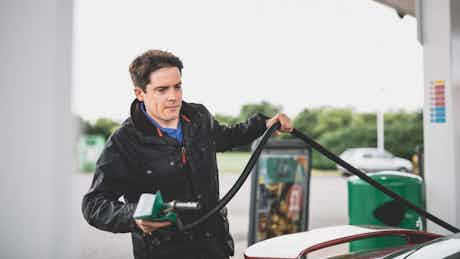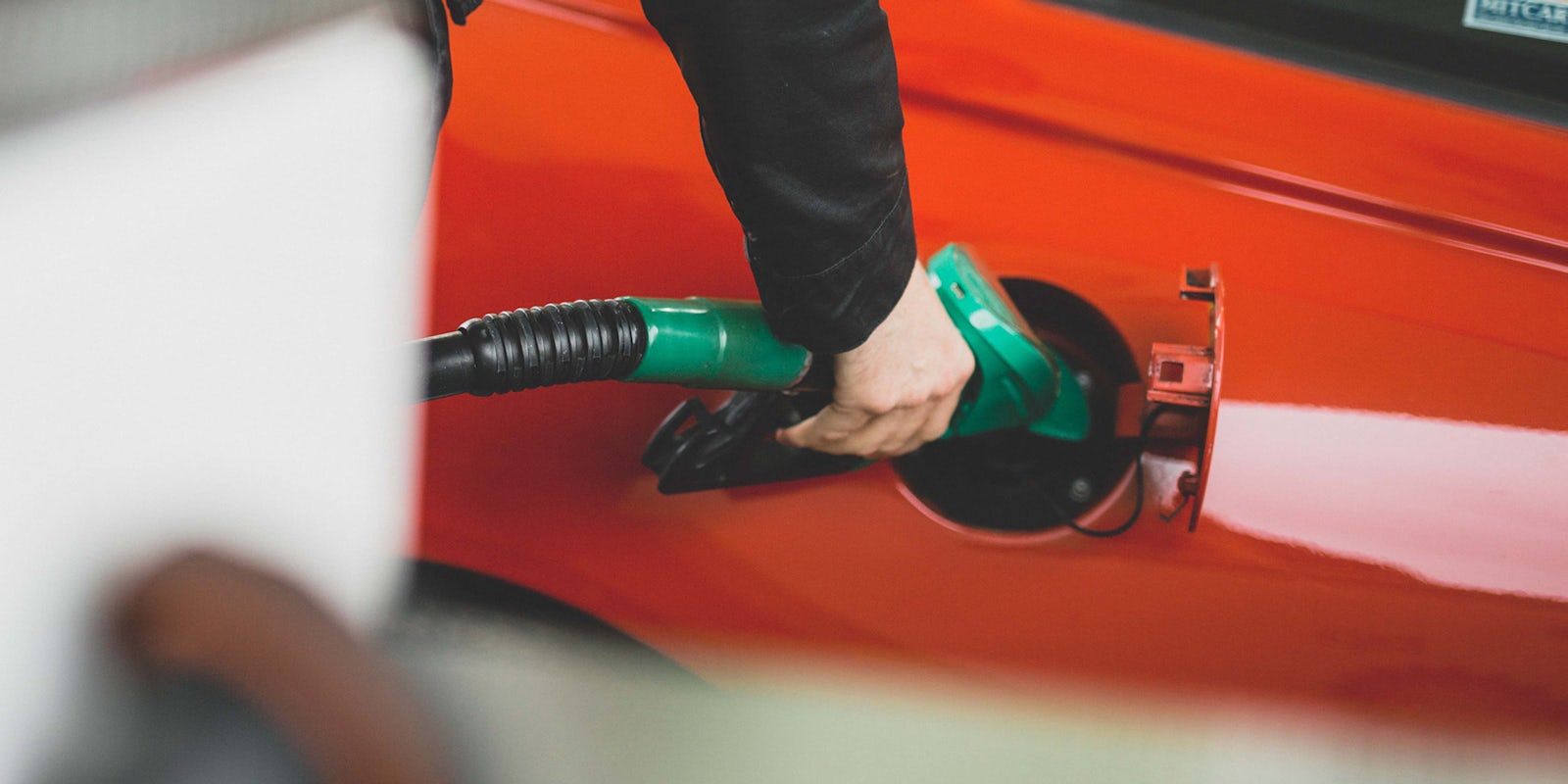What is biofuel?
December 20, 2023 by carwow staff

In the attempt to lower global carbon dioxide emissions, vehicle manufacturers and fuel suppliers have experimented and introduced alternative fuels, including biofuel, a form of fuel made from living matter.
We’ll now look at what biofuels are, how they work in cars with an internal combustion engine (ICE), pros and cons, and prospects for their future.
Biofuel meaning
Biofuels are produced from renewable organic materials and have been used in recent years as an alternative fuel for cars.
Biofuels produce less sulphur oxide, ozone and carbon monoxide when they’re burned in an engine. However, they still release carbon dioxide into the atmosphere – although there are arguments that this is offset by the CO2 absorbed as plant sources for the fuel are grown. Their less harmful emissions mean that they are used as a substitute for the fossil fuels of petrol, coal and gas.

In the UK, the Renewable Transport Fuel Obligation (RTFO) order applies to the suppliers of more than 450,000 litres of fuel a year, requiring them to sell a percentage of their fuel from renewable and sustainable sources.
The two main types of biofuel are bioethanol and biodiesel: bioethanol is a form of alcohol made from corn and sugarcane, while biodiesel is made from vegetable oils and animal fats.
How is biofuel made?
The process of preparing biomass for fuel production is referred to as conversion, with the most common method being fermentation, which breaks down sugars or starches into ethanol using enzymes and yeast.
Bioethanol, a form of alcohol, is created by breaking down the cells of natural sugars, which are then fermented to produce ethanol. Alternatively, it’s possible to extract starch from maize and wheat, which can then be used to make sugar. For the ethanol to be suitable for use in car engines, water has to be removed, so the liquid is distilled. A final process of dehydration removes the last of the water from the mixture.
Biodiesel is made differently. Instead of fermentation, a process called transesterification breaks down triglycerides in the oil or fat, into fatty acid methyl esters (FAMEs). The oil or fat is mixed with an alcohol, such as methanol, and a catalyst, such as sodium hydroxide. Then the mixture is heated, breaking down the triglycerides into FAMEs and glycerine. The glycerine is removed and the remaining liquid is biodiesel.
The biofuels sold for use in vehicles are not 100% from organic material, though. If used on their own, neither bioethanol nor biodiesel contain as much energy per litre as petrol or diesel: but blended together, a biofuel and petrol or diesel improves combustion performance and reduces the emission of harmful gases.
How does biofuel work?
Bioethanol, a biofuel made from fermented plant material that is distilled, purified and blended with petrol to create a fuel that is used in internal combustion engines, in exactly the same way as regular petrol. Because bioethanol is about 30% less efficient than petrol, more pure ethanol is required to fuel the same mileage than gasoline – which is why it is blended with petrol.
You’ll see a bioethanol fuel labelled with an E in front of a number. Until 2021, E5 was most commonly found in British petrol stations, which contained up to 5% renewable ethanol. However, E10 is now becoming more commonplace, containing up to 10% renewable bioethanol.
Using E10 petrol can slightly reduce fuel economy, with a reduction of around 1% that won’t be noticeable in everyday driving. Other factors – your driving style, under-inflated tyres, a roof rack, etc – will have a greater effect on your fuel economy than E10 petrol.
All new cars manufactured since 2011 are compatible with E10 petrol, with the DfT estimating that around 700,000 vehicles in the UK are not.
Biodiesel can be used in diesel engines as an alternative to traditional diesel fuel as it is a renewable, biodegradable and sustainable alternative.
Biodiesel is also less efficient than petrol, although there are blend and quality variations. Instead of the E used to label ethanol, biodiesel blends use a B followed by the percentage of biodiesel in the mix.
Examples of biofuels
- E10 is a blend of up to 10% ethanol and 90% petrol
- E5 uses 5% ethanol and 95% petrol
- B7 is a biodiesel grade that contains up to 7% ethanol and 93% diesel.
- E85 is a bioethanol fuel blend of 85% ethanol and 15% petrol, used for flexible fuel vehicles.
Advantages of biofuels
- The value of biofuels – or a biofuel/fossil fuel blend – comes predominantly from their ability to reduce harmful emissions, including carbon monoxide and sulphur oxide.
- Biofuels use up organic waste products that would otherwise go to waste.
- Because blended fuels produce fewer carbon emissions, the higher the proportion of biofuel, the lower the carbon emissions.
- Used cooking oil can act as a substitute for some diesel drivers, but without research into whether your car is compatible, this could cause significant engine damage for most cars.
Disadvantages of biofuels
- Filling up with a biofuel that isn’t compatible with your car could cause serious damage, a breakdown, or serious collision if your car’s engine suddenly seizes up.
- E10 fuel is potentially less efficient than current unleaded petrol as it provides fewer miles per tank.
- Growing plants for biofuel takes up land that could be otherwise used to grow food crops. And cultivating and transporting biofuel crops also has a CO2 cost.
Does biofuel have a future in cars?
As cars that use internal combustion engines are being phased out, with no new models being sold in the UK beyond 2030, the future of biofuels doesn’t look rosy. They will help reduce carbon emissions as petrol and diesel cars slowly disappear from our roads, but in a world of electric vehicles, the demand for biofuels can only decline. However, even in the limited time left available to fuel for ICE cars, there might be a rival to biofuels, in the shape of synthetic fuels or efuels. These can be created with renewable energy, while carbon captured from their creation can theoretically offset the CO2 emissions when they are burned.
Change cars online with carwow
Looking for an easy way to change your car? Then carwow is the place to go. You can sell your car online for a great price, and get the best deals on a new one. All through our network of trusted dealers and all from the comfort of your home. Tap the button below to get started today.















